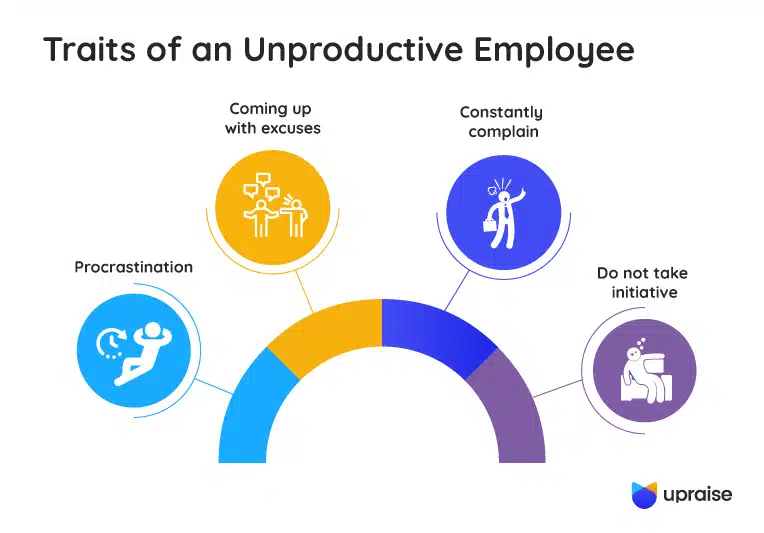Characteristics of Productive Employees
Productive employees are usually independent. They are willing to use initiative to start projects and are consistent at producing quality work without needing supervision. Independent employees are also more likely to find opportunities to learn and develop more, which contributes to their productivity.
Productive employees are more receptive to receiving feedback. They will even go to the extent of requesting feedback. Feedback is used by these employees to learn from mistakes, grow, and develop so that they can improve and advance in their career development. This also makes them an asset to their employers.
Productive employees use innovation to solve challenges. They adopt a systemic approach when problem-solving and are willing to go the extra mile to find solutions.

Productive employees typically possess good time-management skills. They often have a good work-life balance and are therefore able to work efficiently and complete tasks timeously at work. And they have time enough to recover when they leave work. A good work-life balance helps employees find time to recharge and arrive at work inspired and ready to put in the effort.
The ability to stay focused is essential to working productively. Productive workers are more likely to stay focused at work and use different methods to increase/ensure their focus. For example, to stay focused a productive employee might:
- Use checklists to prioritise tasks
- Clean and organise their workspace to avoid distractions and unnecessary time spent looking for things
- Take regular breaks to ensure a healthy work-life balance and the chance to rest and recharge.
Productive employees usually have a positive mindset, which helps them produce good work. Their positivity can also influence others in the workplace and contribute to a healthy workplace culture.
Productive employees have good communication skills. They are often able to use these communication skills to network with colleagues and valuable contacts outside the business.